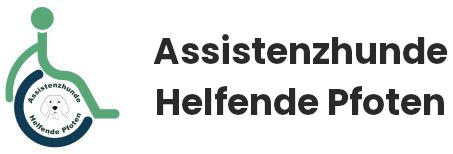Simply explained – for patients, relatives and interested parties
What are assistance dogs for?
Assistance dogs help people with disabilities in everyday life. They assist with tasks that would be difficult or impossible on their own – so that people can live more independently and safely.
Assistance dogs are protected by law in Germany. Find out more in this article:
- What rights people with assistance dogs have
- What the Assistance Dog Ordinance regulates
- How discrimination is prevented
- How the training works
- What responsibility you have as the owner
1st access: Where can an assistance dog go?
An assistance dog can accompany its caregiver everywhere – whether to a café, the doctor or school. This applies to:
- Public buildings (e.g. offices, schools, hospitals)
- Stores, restaurants and shopping centers
- Bus, train and other means of transportation
Important:
A dog is not a pet, but a helper. It enables equal participation in life – and this is protected by law.
2 The Assistance Dog Ordinance – what does it say?
The Assistance Dog Ordinance regulates precisely:
- What an assistance dog must be able to do
- how he is trained
- how quality is assured
Only dogs that have undergone recognized training according to fixed standards are officially considered assistance dogs. They then receive a badge and an ID card – the so-called certificate of recognition.
3. protection against discrimination
People with assistance dogs must not be disadvantaged – neither in everyday life nor at work.
Examples of discrimination would be:
- A restaurant refuses entry because of the dog
- A company rejects an application because of the assistance dog
This is not allowed. People with disabilities and their dogs are under special protection – regulated in the General Equal Treatment Act (AGG) and other regulations.
4. training & recognition
The training is very extensive and takes place in three stages:
- Basic training: obedience, everyday training, getting used to noises, crowds, etc.
- Specialization: The dog learns to respond to individual needs (e.g. help with PTSD, autism or ME/CFS).
- Team phase: Dog and human learn to live and work together.
At the end there is the state-regulated team examination. This is followed by official recognition.
5. responsibility in everyday life
An assistance dog brings many rights – but also responsibilities:
- Leadership: The dog must be well led, friendly and calm
- Care: health, exercise and nutrition are essential
- Training: Regular refresher courses are also important after training
Society also has a responsibility: respect, consideration and education help everyone to live better together.
6. three practical examples
🍽️ Visiting a café:
The dog is allowed inside – a reprimand would not be permitted.
🚍 Underground:
The assistance dog travels free of charge. It is not “animal transportation”, but medical assistance.
🛍️ Discrimination:
A store may not refuse entry simply because an assistance dog is present. That would be against the law.
Why are these rules important?
Assistance dog laws not only protect the people who need help – they also create trust, safety and clarity for everyone else. Enabling assistance dogs:
- More independence
- more participation
- Fewer barriers
- more respect and understanding
What still needs to be improved?
Despite clear laws, many people with assistance dogs encounter ignorance or prejudice in everyday life. That’s why we need:
- More education in society
- Good training for specialists
- Modern and fair laws that continue to evolve
Conclusion
Laws for assistance dogs make our coexistence fairer. They provide safety and clarity – for dogs, people and the environment.
If you see someone with an assistance dog, remember: this dog is more than just an animal. It is part of a partnership – and often the key to a dignified life.
Important to know:
This article provides general information. For specific legal questions, please contact a specialist office or a legal advisor.
Author: Pfoten-Paul, in cooperation with the team of “Assistenzhunde Helfende Pfoten”
